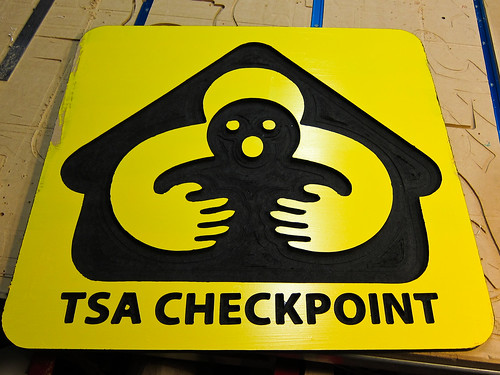Recently, I went to my local gun store to visit my sound suppressor. I am waiting on the ATF approval of the transfer. I am not sure what the point of the approval is: I already have two .223 sound suppressors, so what difference would one more make?
![]()
Another fun feature of NFA riles: if my friend and I accidentally swap sound suppressors of the same exact make, model and caliber after a range session, we'd be committing felonies. From the past examples, it doesn't look like ATF considers the accidental nature of such mix-up a mitigating factor. Neither of us would gain any additional capabilities, but the tax stamps for serialized parts wouldn't be in order. What hard that would cause to anyone is beyond me! I note that sound suppressors are completely unregulated in Norway, Finland and New Zealand, all without any dire consequences.Freedom from regulation also means affordable prices. In the US, a rimfire suppressor cost $200-450 and a $200 excise tax has to be paid after a 3-6 month wait. In New Zealand, a nice rimfire suppressor can be had for $40NZ ($31US) and no excise tax or license is required. In my case, the fingerprints, the paperwork and the local police approval took about a full day of my time (price that!). FFL transfer fee, postage and fingerprinting fees on four suppressors added up to $220 in addition to the $800 excise tax.
Even with the high cost, sound suppressors are well worth the trouble. The reduce hearing damage, greatly reduce muzzle flash and mitigate recoil.
Gemtech Halo

Another fun feature of NFA riles: if my friend and I accidentally swap sound suppressors of the same exact make, model and caliber after a range session, we'd be committing felonies. From the past examples, it doesn't look like ATF considers the accidental nature of such mix-up a mitigating factor. Neither of us would gain any additional capabilities, but the tax stamps for serialized parts wouldn't be in order. What hard that would cause to anyone is beyond me! I note that sound suppressors are completely unregulated in Norway, Finland and New Zealand, all without any dire consequences.Freedom from regulation also means affordable prices. In the US, a rimfire suppressor cost $200-450 and a $200 excise tax has to be paid after a 3-6 month wait. In New Zealand, a nice rimfire suppressor can be had for $40NZ ($31US) and no excise tax or license is required. In my case, the fingerprints, the paperwork and the local police approval took about a full day of my time (price that!). FFL transfer fee, postage and fingerprinting fees on four suppressors added up to $220 in addition to the $800 excise tax.
Even with the high cost, sound suppressors are well worth the trouble. The reduce hearing damage, greatly reduce muzzle flash and mitigate recoil.
Gemtech Halo


















